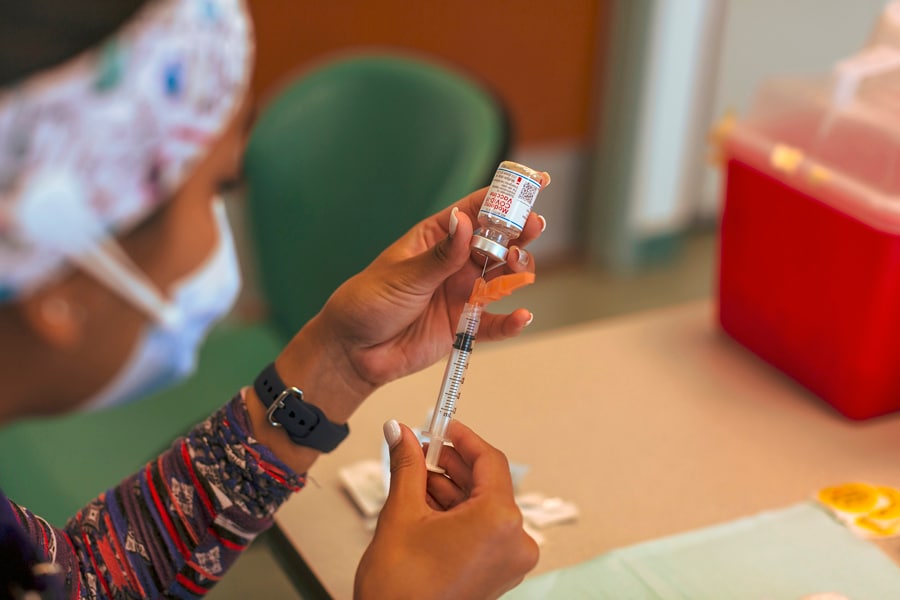
Pressure mounts to lift patent protections on coronavirus vaccines
Proponents say the waiver would free innovators in other countries to pursue their own coronavirus vaccines, without fear of patent infringement lawsuits
 A health care worker prepares a COVID-19 vaccine in Lake Worth, Fla., April 24, 2021. President Joe Biden and drugmakers are facing demands from liberal activists and global leaders to suspend intellectual property rights on the vaccines as the pandemic surges. (Saul Martinez/The New York Times
A health care worker prepares a COVID-19 vaccine in Lake Worth, Fla., April 24, 2021. President Joe Biden and drugmakers are facing demands from liberal activists and global leaders to suspend intellectual property rights on the vaccines as the pandemic surges. (Saul Martinez/The New York Times
President Joe Biden, faced with surging COVID-19 crises in India and South America, is under intensifying pressure from the international community and his party’s left flank to commit to increasing the vaccine supply by loosening patent and intellectual property protections on coronavirus vaccines.
Pharmaceutical and biotech companies, also feeling pressure, sought on Monday to head off such a move, which could cut into future profits and jeopardize their business model. Pfizer and Moderna, two major vaccine-makers, each announced steps to increase the supply of vaccine around the world.
The issue is coming to a head as the World Trade Organization’s General Council, one of its highest decision-making bodies, meets Wednesday and Thursday. India and South Africa are pressing for the body to waive an international intellectual property agreement that protects pharmaceutical trade secrets. The United States, Britain and the European Union so far have blocked the plan.
Inside the White House, health advisers to the president admit they are divided. Some say that Biden has a moral imperative to act, and that it is bad politics for the president to side with pharmaceutical executives. Others say spilling closely guarded but highly complex trade secrets into the open would do nothing to expand the global supply of vaccines.
Having the recipe for a vaccine does not mean a drugmaker could produce it, certainly not quickly, and opponents argue that such a move would harm innovation and entrepreneurship — and damage America’s pharmaceutical industry. Instead, they say, Biden can address global needs in other ways, like pressing companies that hold patents to donate vast quantities of vaccine or sell it at cost.
©2019 New York Times News Service




